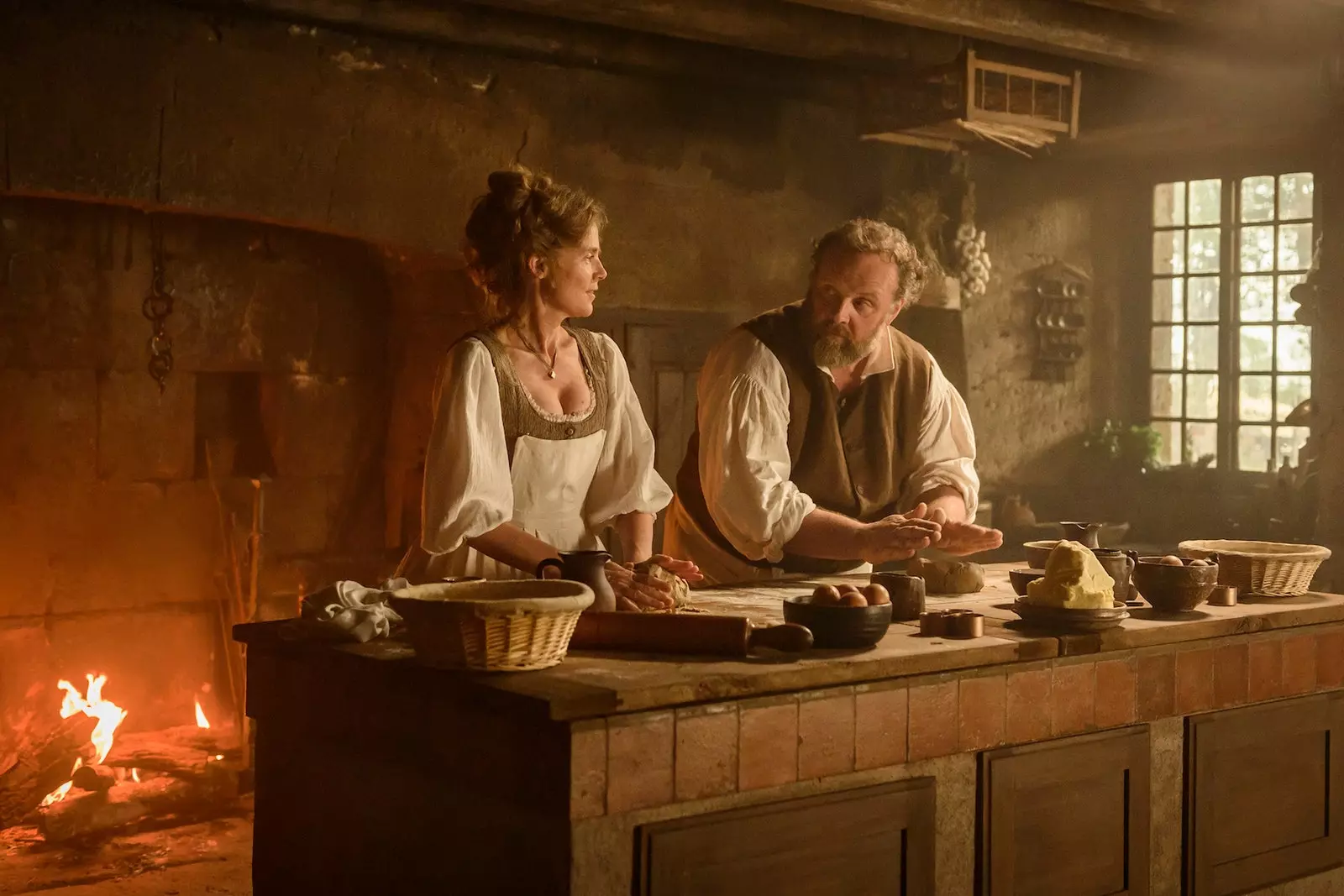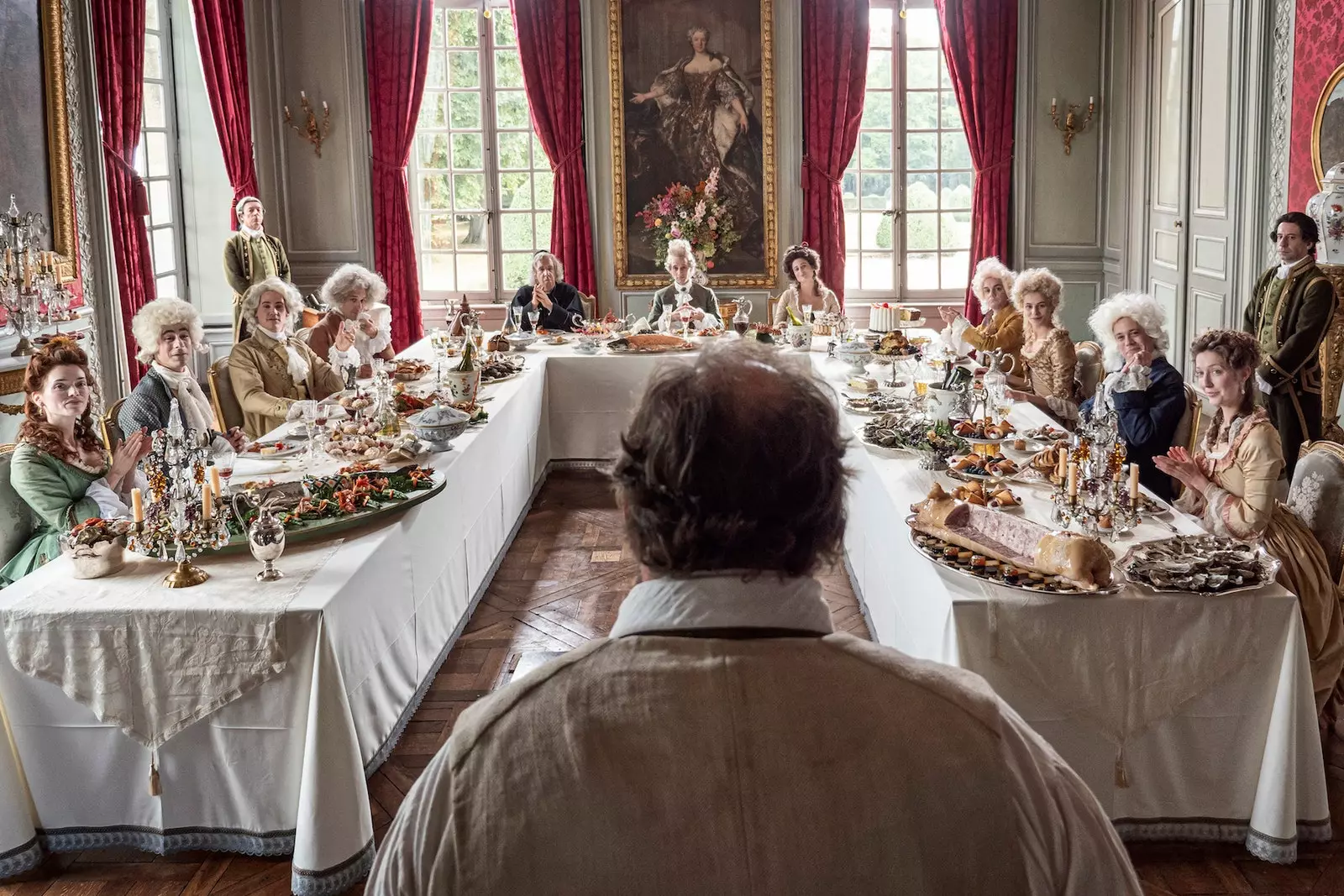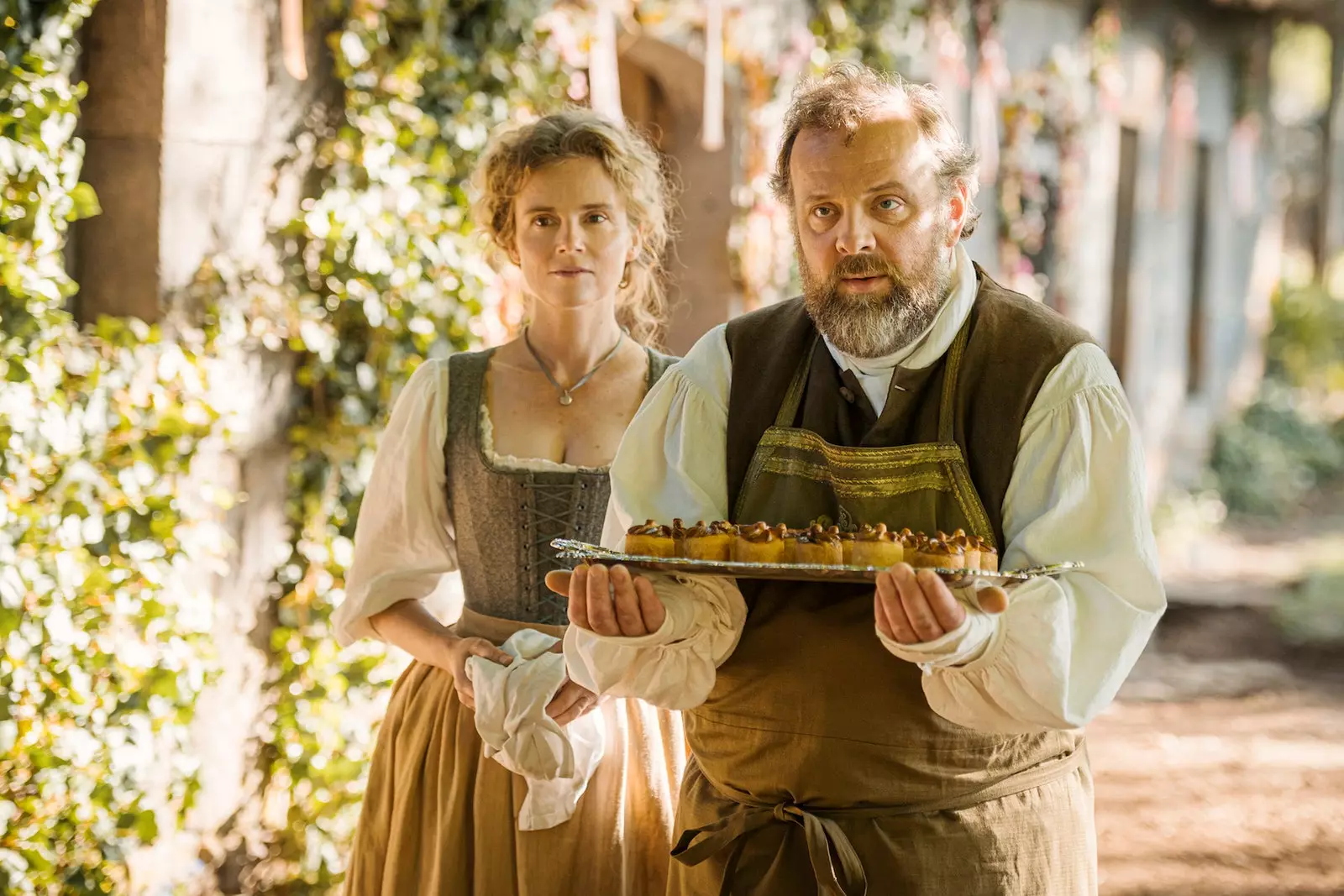In the 18th century, French nobles used the kitchen as a way to kill your boredom. They no longer had to go to war, they no longer had so many obligations. They appeared at banquets and deadly sins with powdered faces and white wigs. The good cooks they were like one more medal on the chest of dukes and counts. And, meanwhile, the people were starving with the price of wheat through the roof.
Furthermore, speaking of clouds, according to the Church at that time, there were a heavenly scale of food, that the nobility continued to believe.
“The more aerial, the more divine: a pigeon is perfect, a cow, closer to the ground, is less good. The potato, although very nutritious, took 100 years to establish itself in France, it was considered product of the devil and carriers of diseases such as leprosy”, explains the director and screenwriter Eric Besnard, who based on all these data and historical customs wrote Delicious (Theatrical release January 5).
Delicious could be the story of the creation of the first restaurant in the world. Something like that happened, only it happened in Paris, not in the country. And it was a sum of ideas from different creators, different chefs in different places. It did not occur to one of them to offer meals already served, a written and closed menu, putting tablecloths and flowers on the table.

The rural kitchen of the first restaurant in the world.
“In fact, his birth lasted more than 15 years and the first restaurant that was born did it in 1782”, explains Besnard, who attacked this subject because he wanted to make a film about French identity. And what is more French than cooking and good eating?
“It is partly thanks to Turgot, the finance minister of Louis XVI; he was responsible for the appearance of the restaurant, thanks to the abolition of guilds and the liberalization of trade, which was launched to lower prices and try to stop the economic crisis that was plaguing the country. Starting in 1776, merchants, who previously limited themselves to selling a single product, can sell several at the same time.
In turn, the flight of the nobility seeing the danger of the revolution, left many chefs behind. Some suffered the same fate as their masters (guillotine), others emigrated and others stayed in French cities and towns to continue doing what they knew how to do, but serving their dishes to anyone who wanted to eat them. Prices and portions adjusted to each stomach.
EATING, AN ART FOR EVERYONE
Delicious starts in the kitchen of a country palace, in Cantal, Manceron (Grégory Gadebois) is the chef of Duke of Chamfort (Benjamin Lavernhe). But he can only cook what the duke, who considers himself a gourmet, asks for.
Mancerón yells: "Work, energy and butter." And he gets angry with the use of oriental spices that are reminiscent of medieval recipes, such as cinnamon.
“Make taste live, not make it up”, he snaps. But that day he has allowed himself a novelty, a starter, a small potato and truffle puff pastry. A first bite that baptizes "Delicious" honoring how good it is.

Representation of gluttony.
Sacrilege. He has dared to invent and innovate and on top of that he has used potatoes and truffles, devil's food grown underground. But his pride as a creator prevents him from asking for forgiveness and he goes back to his father's baker's mill, along with his son, a lover of the coming revolution and enlightened thoughts. “A well-fed humanity is a humanity that thinks better”, he says.
With the arrival of Louise (Isabelle Carre) the entrepreneurial spirit begins to take over everyone and they turn their bakery and inn into a restaurant, a place where to repair or restore tired stomachs (that's a bit of the etymology of restaurant), but also create fun and enjoyment.
That was the main difference with respect to the inns and inns that had populated the roads in Europe for centuries. with the restaurant The myth that only the nobles knew how to eat was dismantled.
To invent and carry out the banquets that appear on the screen, Besnard relied on the experience and expertise of two famous French chefs, Thierry Carrier and Jean-Chales Karmann. They are the creators of the delicious recipe that we share here:
Ingredients for 20 “delicious”:
For the Valentine dough:
- 300 g flour
- 35g potato starch
- 250g of butter
- 5g of salt
- 15g sugar
- 7 cl of whole milk
- 2 egg yolks
For the filling:
- 600g potatoes
- 50 g of fresh truffle. Or you can substitute mushrooms
- 120g duck butter
- 90 g grated cantal cheese
- Fine salt, freshly ground pepper

Manceron with the delicious on a tray.
Elaboration:
Preparation of the Valentine dough:
- To do this, mix the flour with the potato starch, salt and sugar in a bowl.
- With your fingertips, mix in the softened butter.
- Finish by adding the milk and egg yolks, and mix until you get a smooth and homogeneous paste. Reserve in a cool place.
- Add the salt and sugar. Incorporate the softened butter with the tips of your fingers.
- Finish by adding the milk and egg yolks, knead until you get a smooth and homogeneous dough.
- Reserve in a cool place.
Preparation of the “delicious” filling:
- Peel the potatoes and cut them into wedges, then cut them into regular slices half a centimeter thick.
- Heat the duck lard in a large frying pan and fry the potato slices until golden brown.
- Season with salt and pepper.
- Drain on paper towels. Keeping warm.
- At the same time, cut the truffles into thin slices.
- For the assembly, line small molds with the Valentine's dough that you have previously spread with a rolling pin on the floured work surface.
- Superimpose a slice of potato, a pinch of grated cheese, a slice of truffle and repeat the operation until the top of the mold.
- Cover with a thin layer of puff pastry and decorate with small pieces of puff pastry in the shape of a half moon that we will have cut with a pastry cutter.
- Preheat the oven to 180°C and bake for 35 minutes.
- Remove from oven and eat while hot.
